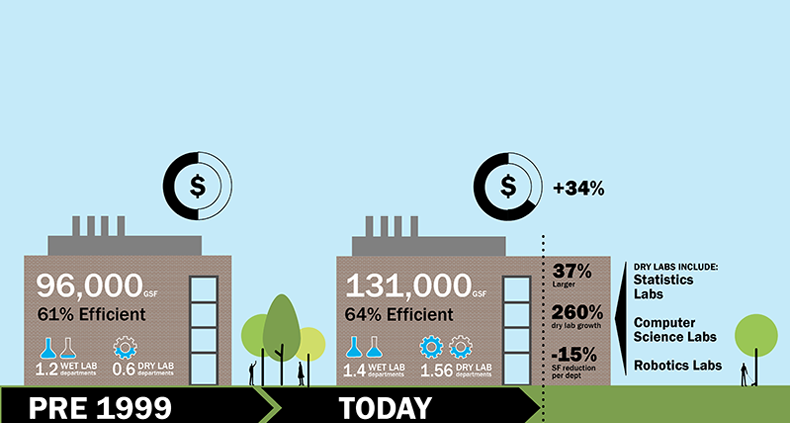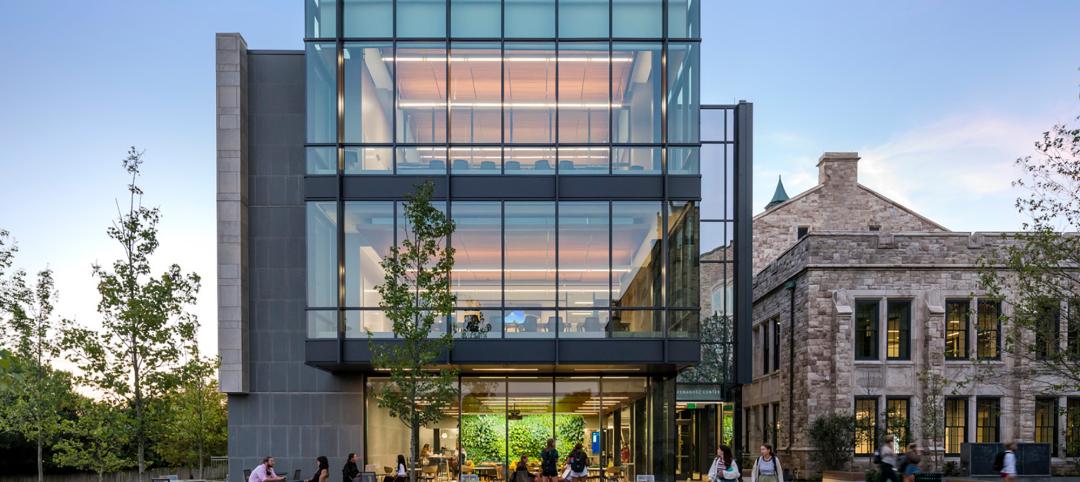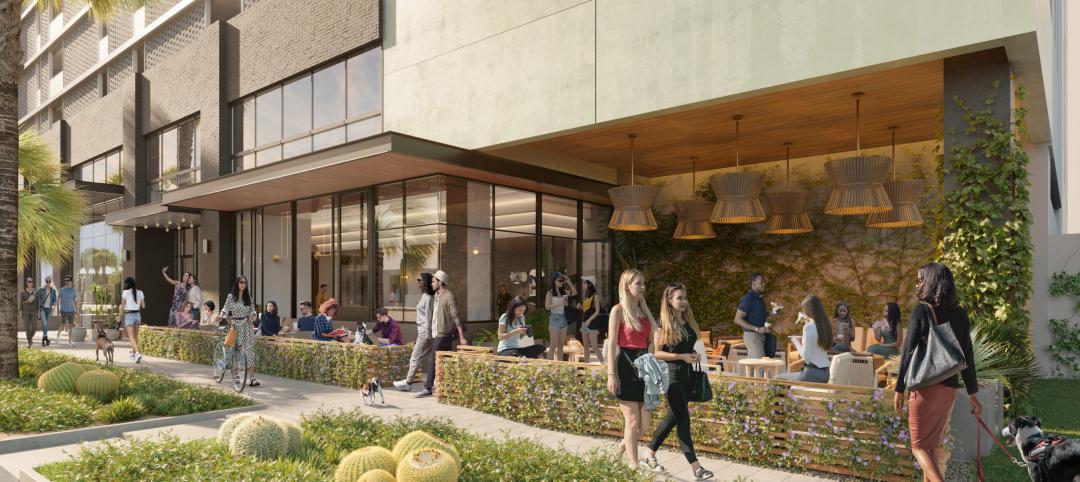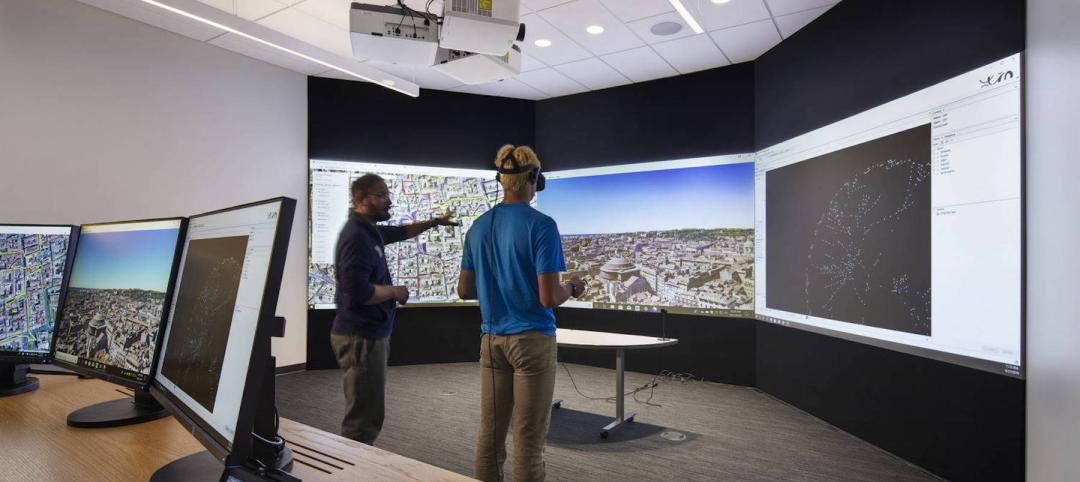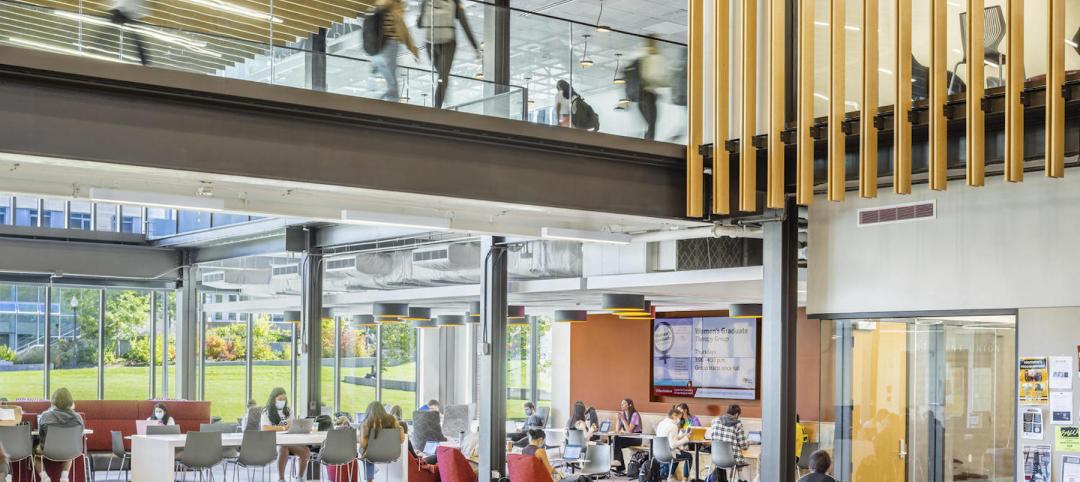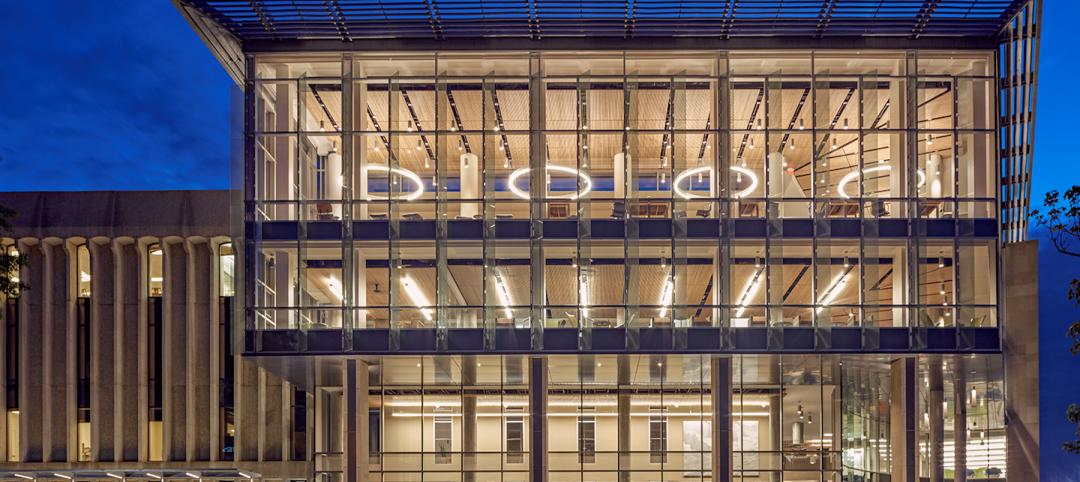Shepley Bulfinch undertook a three-month-long study where we examined science facilities from over a 100 colleges and universities across the country. We gathered data that details departmental usage, building efficiency, and other key metrics that drive the design of science buildings. In particular, we tracked usage related to interdisciplinary research and STEM trends across higher education.
Key insights included:
Buildings are 37% larger while undergoing a 15% reduction in square footage per department.
There has been a 260% increase in the space allotted to dry labs. This dramatic increase represents new types of research driven by technology that does not require hoods and benches, including computational biology, computer science, and robotics.
Increased cost represents the increasingly complex nature of combining multiple typologies (wet and dry) in one building and increased construction costs due to skilled labor shortages. It could also represent higher performance buildings focused on faculty retention and recruitment.
On average, planning efficiency remains about the same, as elements in building GSF (structure, bathrooms, circulation) cannot get smaller. Overall GSF has increased as institutions are building larger buildings to house multiple departments, as opposed designating one building per department.
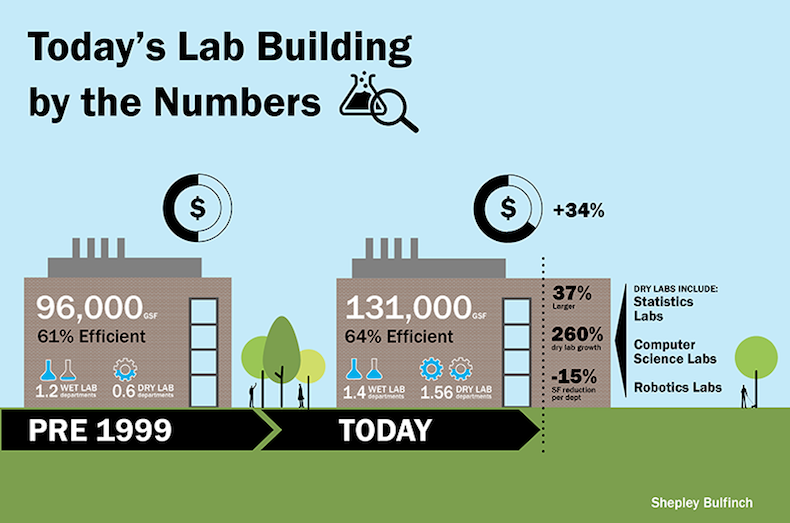
These are the most high-level insights, but the data we have collected allows for more detailed queries. For more on the study findings, feel free to email me at lvoiland@shepleybulfinch.com
About the author:
Luke Voiland, AIA, is a Principal at Shepley Bulfinch and a leader in the planning and design of innovative learning environments.
More from Author
Shepley Bulfinch | Aug 12, 2024
Planning for growing computer science programs
Driven by emerging AI developments and digital transformation in the business world, university computer science programs are projected to grow by nearly 15% by 2030.
Shepley Bulfinch | Jul 11, 2024
3 considerations for designing healthy, adaptable student dining
Amanda Vigneau, IIDA, NCDIQ, LEED ID+C, Director, Shepley Bulfinch, shares three ways student dining facilities have evolved to match changes in student life.
Shepley Bulfinch | Nov 27, 2023
7 ways multifamily designers can promote wellness in urban communities
Shepley Bulfinch's Natalie Shutt-Banks, AIA, identifies design elements that multifamily developers can use to maximize space while creating a positive impact on residents and the planet
Shepley Bulfinch | Jul 6, 2023
The responsibility of adapting historic university buildings
Shepley Bulfinch's David Whitehill, AIA, believes the adaptive reuse of historic university buildings is not a matter of sentimentality but of practicality, progress, and preservation.
Shepley Bulfinch | Jun 2, 2023
Designing a pedestrian-focused city in downtown Phoenix
What makes a city walkable? Shepley Bulfinch's Omar Bailey, AIA, LEED AP, NOMA, believes pedestrian focused cities benefit most when they're not only easy to navigate, but also create spaces where people can live, work, and play.
Shepley Bulfinch | Apr 5, 2023
Carole Wedge, former Shepley Bulfinch President and CEO, retires after 37 years
Wedge’s 37-year career at Shepley Bulfinch evolved a historic firm into a national design practice.
Shepley Bulfinch | Aug 8, 2022
The technology balancing act
As our world reopens from COVID isolation, we are entering back into undefined territory – a form of hybrid existence.
Shepley Bulfinch | Jul 26, 2022
Better design with a “brain break”
During the design process, there aren’t necessarily opportunities to implement “brain breaks,” brief moments to take a purposeful pause from the task at hand and refocus before returning to work.
Shepley Bulfinch | Jul 11, 2022
Student life design impacts campus wellness
As interior designers, we have the opportunity and responsibility to help students achieve deeper levels of engagement in their learning, social involvement, and personal growth on college campuses.
Shepley Bulfinch | Jun 8, 2022
Welcome to the hybrid library
Libraries have grown to become the intellectual and social hubs of campus, where, prior to March 2020, students, researchers, and faculty gathered to collaborate and connect.

